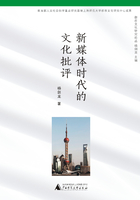Many a Government that will not allow of any of its acts being discussed, will hesitate before it creates martyrs and excites the religious fanaticism of the masses. Thus in Germany, in 1845, in every State, either the Roman Catholic or the Protestant religion, or both, were considered part and parcel of the law of the land. In every State, too, the clergy of either of those denominations, or of both, formed an essential part of the bureaucratic establishment of the Government. To attack Protestant or Catholic orthodoxy, to attack priestcraft, was then to make an underhand attack upon the Government itself. As to the German Catholics, their very existence was an attack upon the Catholic Governments of Germany, particularly Austria and Bavaria; and as such it was taken by those Governments. The Free Congregationalists, Protestant Dissenters, somewhat resembling the English and American Unitarians, openly professed their opposition to the clerical and rigidly orthodox tendency of the King of Prussia and his favourite Minister for the Educational and Clerical Department, Mr. Eickhorn. The two new sects, rapidly extending for a moment, the first in Catholic, the second in Protestant countries, had no other distinction but their different origin; as to their tenets, they perfectly agreed upon this most important point that all definite dogmas were nugatory. This want of any definition was their very essence; they pretended to build that great temple under the roof of which all Germans might unite; they thus represented, in a religious form, another political idea of the day--that of German unity, and yet they could never agree among themselves.
The idea of German unity, which the above-mentioned sects sought to realize, at least, upon religious ground, by inventing a common religion for all Germans, manufactured expressly for their use, habits, and taste--this idea was, indeed, very widely spread, particularly in the smaller States.
Ever since the dissolution of the German Empire by Napoleon, the cry for a union of all the disjecta membra of the German body had been the most general expression of discontent with the established order of things, and most so in the smaller States, where costliness of a court, an administration, an army, in short, the dead weight of taxation, increased in a direct ratio with the smallness and impotency of the State. But what this German unity was to be when carried out was a question upon which parties disagreed.
The bourgeoisie, which wanted no serious revolutionary convulsion, were satisfied with what we have seen they considered "practicable," namely a union of all Germany, exclusive of Austria, under the supremacy of a Constitutional Government of Prussia; and surely, without conjuring dangerous storms, nothing more could, at that time, be done. The shopkeeping class and the peasantry, as far as these latter troubled themselves about such things, never arrived at any definition of that German unity they so loudly clamoured after; a few dreamers, mostly feudalist reactionists, hoped for the reestablishment of the German Empire; some few ignorant, soi-disant Radicals, admiring Swiss institutions, of which they had not yet made that practical experience which afterwards most ludicrously undeceived them, pronounced for a Federated Republic; and it was only the most extreme party which, at that time, dared pronounce for a German Republic, one and indivisible.
Thus, German unity was in itself a question big with disunion, discord, and, in the case of certain eventualities, even civil war.
To resume, then; this was the state of Prussia, and the smaller States of Germany, at the end of 1847. The middle class, feeling their power, and resolved not to endure much longer the fetters with which a feudal and bureaucratic despotism enchained their commercial transactions, their industrial productivity, their common action as a class; a portion of the landed nobility so far changed into producers of mere marketable commodities, as to have the same interests and to make common cause with the middle class; the smaller trading class, dissatisfied, grumbling at the takes, at the impediments thrown in the way of their business, but without any definite plan for such reforms as should secure their position in the social and political body; the peasantry, oppressed here by feudal exactions, there by money-lenders, usurers, and lawyers; the working people of the towns infected with the general discontent, equally hating the Government and the large industrial capitalists, and catching the contagion of Socialist and Communist ideas; in short, a heterogeneous mass of opposition, springing from various interests, but more or less led on by the bourgeoisie, in the first ranks of which again marched the bourgeoisie of Prussia, and particularly of the Rhine Province. On the other hand, Governments disagreeing upon many points, distrustful of each other, and particularly of that of Prussia, upon which yet they had to rely for protection; in Prussia a Government forsaken by public opinion, forsaken by even a portion of the nobility, leaning upon an army and a bureaucracy which every day got more infected by the ideas, and subjected to the influence, of the oppositional bourgeoisie--a Government, besides all this, penniless in the most literal meaning of the word, and which could not procure a single cent to cover its increasing deficit, but by surrendering at discretion to the opposition of the bourgeoisie.
Was there ever a more splendid position for the middle class of any country, while it struggled for power against the established Government?
LONDON, September, 1851.















